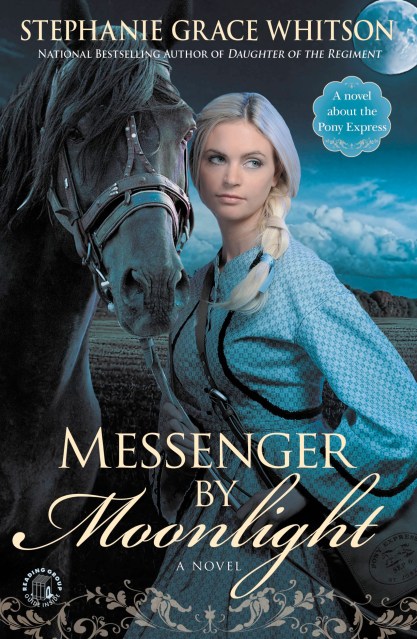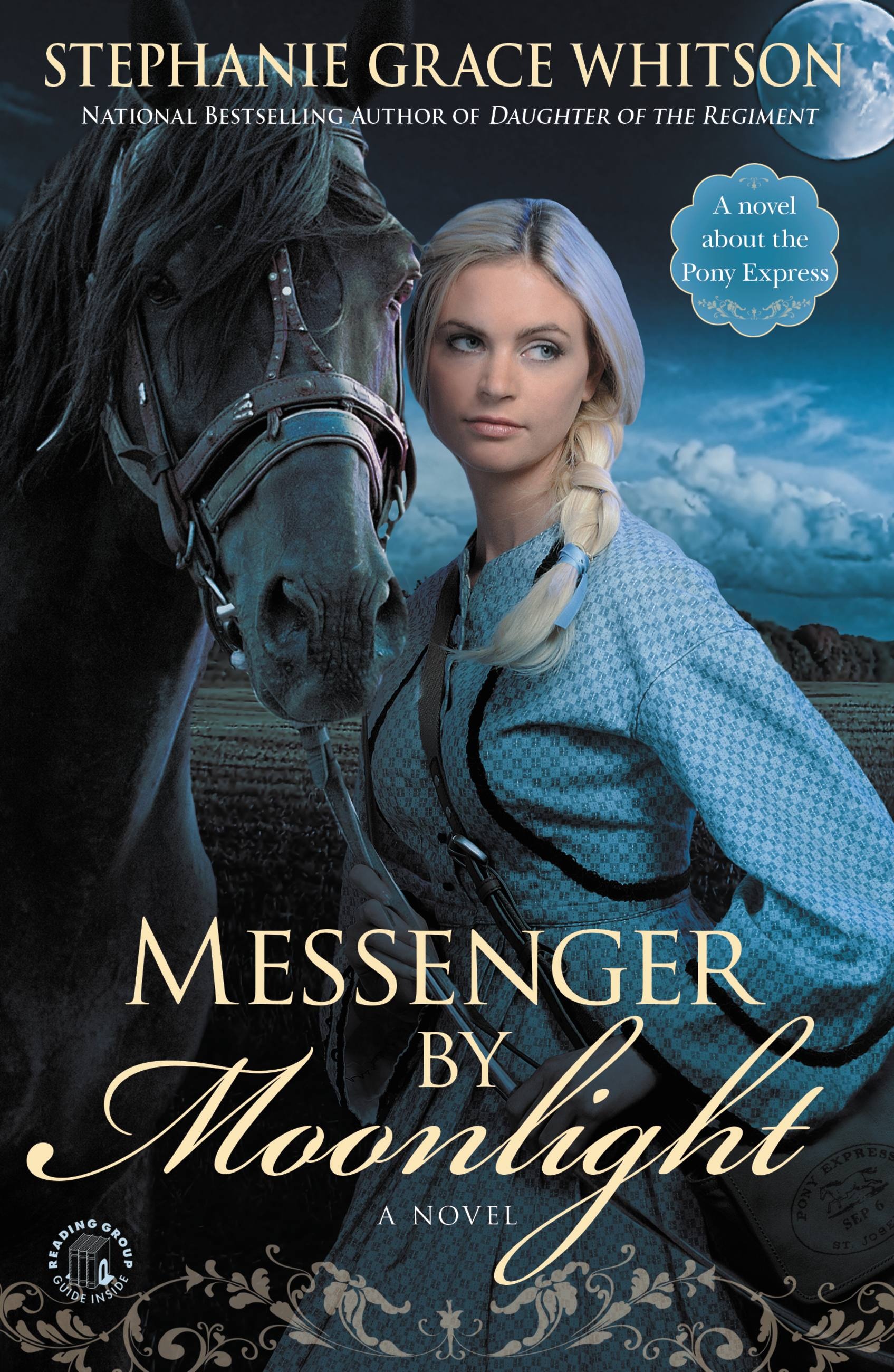Promotion
Use code MOM24 for 20% off site wide + free shipping over $45
Messenger by Moonlight
A Novel
Contributors
Formats and Prices
Price
$14.99Price
$19.49 CADFormat
Format:
- Trade Paperback $14.99 $19.49 CAD
- ebook $9.99 $12.99 CAD
This item is a preorder. Your payment method will be charged immediately, and the product is expected to ship on or around May 10, 2016. This date is subject to change due to shipping delays beyond our control.
Also available from:
Orphaned Annie Paxton and her brothers may have lost the only home they’ve ever known, but they’re determined to make a better future in St. Joseph, Missouri. Annie dreams of a pretty house with window boxes, and having friends, and attending church every week. But then her brothers spot the ad for a new venture called the Pony Express. “Wanted,” it reads, “Young, skinny fellows not over eighteen. Must be expert riders and willing to risk death daily. Orphans preferred.” Sure enough, both her brothers land jobs as Express messengers, and Annie puts her dreams on hold to work as a cook at Clearwater Ranch, a station along the Pony Express route.
Annie struggles to adapt to her new job — work made all the more challenging when she has so many to feed and few ingredients. The gruff station owner, George, doesn’t seem inclined to make her life any easier, or at least not at first. But slowly a friendship builds between them. When Annie attracts the attention of a refined, dashing lieutenant from the nearby fort, she’ll have to learn how to trust her instincts and follow her heart, even if she’s conflicted about which way it’s leading her.
Genre:
- On Sale
- May 10, 2016
- Page Count
- 352 pages
- Publisher
- FaithWords
- ISBN-13
- 9781455529087
Newsletter Signup
By clicking ‘Sign Up,’ I acknowledge that I have read and agree to Hachette Book Group’s Privacy Policy and Terms of Use







